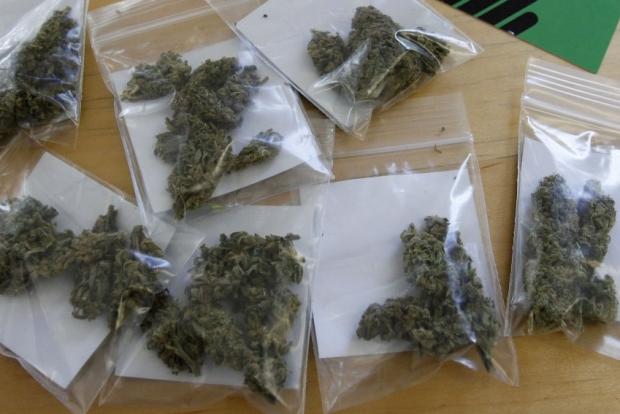Monday in Marijuana: New Buffalo Arrest Data
2015 arrest information
Our friends at the Buffalo Cannabis Movement have passed along their newest data from the state’s division of criminal justice services on local marijuana arrests. This isn’t new ground, it’s become sadly predictable national trend that developed during the administration of the first president who famously admitted to smoking, but not inhaling marijuana—Bill Clinton. But that shouldn’t stop us from taking a look. Below are figures for arrests on possession of marijuana (and here is a handy resource for decoding what the penal codes signify).
|
|||||||||||||||||||||||||||||||||||||||||||||||||||||||||||||||||||||||||||||||||||||||||||||||||||||||||||||||||||||||||||||||||||||||||||||||||||||||||||||||||||||||||||||||||||||||||||||||||||||||||||||||||||||||||||||||||||
A few things become immediately clear. The county, which has about 700,000 more people in it than the City of Buffalo, was responsible for only 25 percent of the total arrest figure, and those arrests that occurred outside of the city are way more representative of the county’s demographics. Of the 159 people arrested outside of city limits, 67 percent of them were white and only 26 percent were black. Those numbers in the city, by contrast were 12 and 82 percent. Shameful numbers in a community lead by politicians tripping over themselves to sign the so-called “opportunity pledge” at least three times.
The second half of the data for criminal sale arrests offers another wrinkle:
|
|||||||||||||||||||||||||||||||||||||||||||||||||||||||||||||||||||||||||||||||||||||||||||||||||||||||||||||||||||||||||||||||||||||||||||||||||||||||||||||||||||||||||||||||||||||||||||||||||||||||||||||||||||||||||||||||||||
Criminal sale in the fifth is for an amount under two grams. According to Buffalo’s crime statistics, the only weed dealers in town are black twenty-somethings selling dime bags. Only two other arrests total were made pinching dealers selling anything more than two-gram bags. We hear relatively frequent news of grow operations getting busted, but according to the data, there are no dealers moving anything above quarter-pounds of the stuff, which is high nonsense. Appropriately so, busting high-level marijuana dealers appears to just be a low priority for the Buffalo Police Department.
Ironically, classifying marijuana crimes as lowest police priority is something local activists have been asking the Common Council and its Police Oversight Committee to do for at least the past year. As it turns out, narcotics detectives are already where street cops should be, enforcing laws in the best interests of public safety in the light of a heroin epidemic that claims lives on a near daily basis.
Mistaken identity
On Friday afternoon, a middle aged Canadian couple came to the office looking for a “dispensary.” Since there’s really nothing else classified as such, we knew what they were looking for. They explained they had Googled “medical marijuana dispensary” and came up with our address, which makes a modicum of sense given our coverage of New York’s very New Yorkish rollout of the medicine. The man explained he held a medical marijuana card, which he received after having a Skyped consultation with a physician and forking over $150, and thought it would be great to hit the Galleria with a spiked “lolly in hand” (marijuana hard candies have become popular in jurisdictions which have legalized it).
Canadian imbibers should probably learn to just chill at home, full legalization is on the way. It’s just a matter of when and under what kind of regulation.
Ranking the presidential candidates on marijuana policy
Bernie Sanders
Sanders is alone among presidential candidates in regards to speaking out on the civil rights issue at the intersection marijuana and law enforcement. Former Republican candidate Rand Paul was similarly open-minded about criminal justice reform, but his motivation was more consistently explained as one of libertarian-flavored fiscal policy.
Hillary Clinton
Clinton’s position would be to simply to allow the status quo to continue and monitor the data out of Colorado, Washington, Oregon, and D.C. She believes in states’ ability to self-determine on the issue on recreational legalization for now, and she is supporter of medical marijuana.
Donald Trump
Trump’s position on drugs is a bit hard to pin down. In 1990, he supported full legalization of all drugs but since becoming a Republican candidate he’s been a bit more cunning on the matter. Nothing in his past suggests he’d turn into some kind of sheriff as commander-in-chief (so help us, God), in fact, he may be more reform-minded on drug policy than anyone currently in the race besides Sanders. Like with most policy points, Trump’s actual direction once in office (so help us, God) is a total unknown.
Ted Cruz
The straight-line smiler from Texas is surprisingly laissez-faire on the ganj, resting on his states’ rights laurels. He wouldn’t move the reform needle in any direction, but he’d allow a popular movement to proceed without his interference.
Marco Rubio
The Florida senator stand out from the thinned crowd now with his hard-line stance on the plant. He’s threatened to pull the plug on the legalization experiment flourishing now in four states, and he’s expressed pointed concern about the plant’s medical uses.

